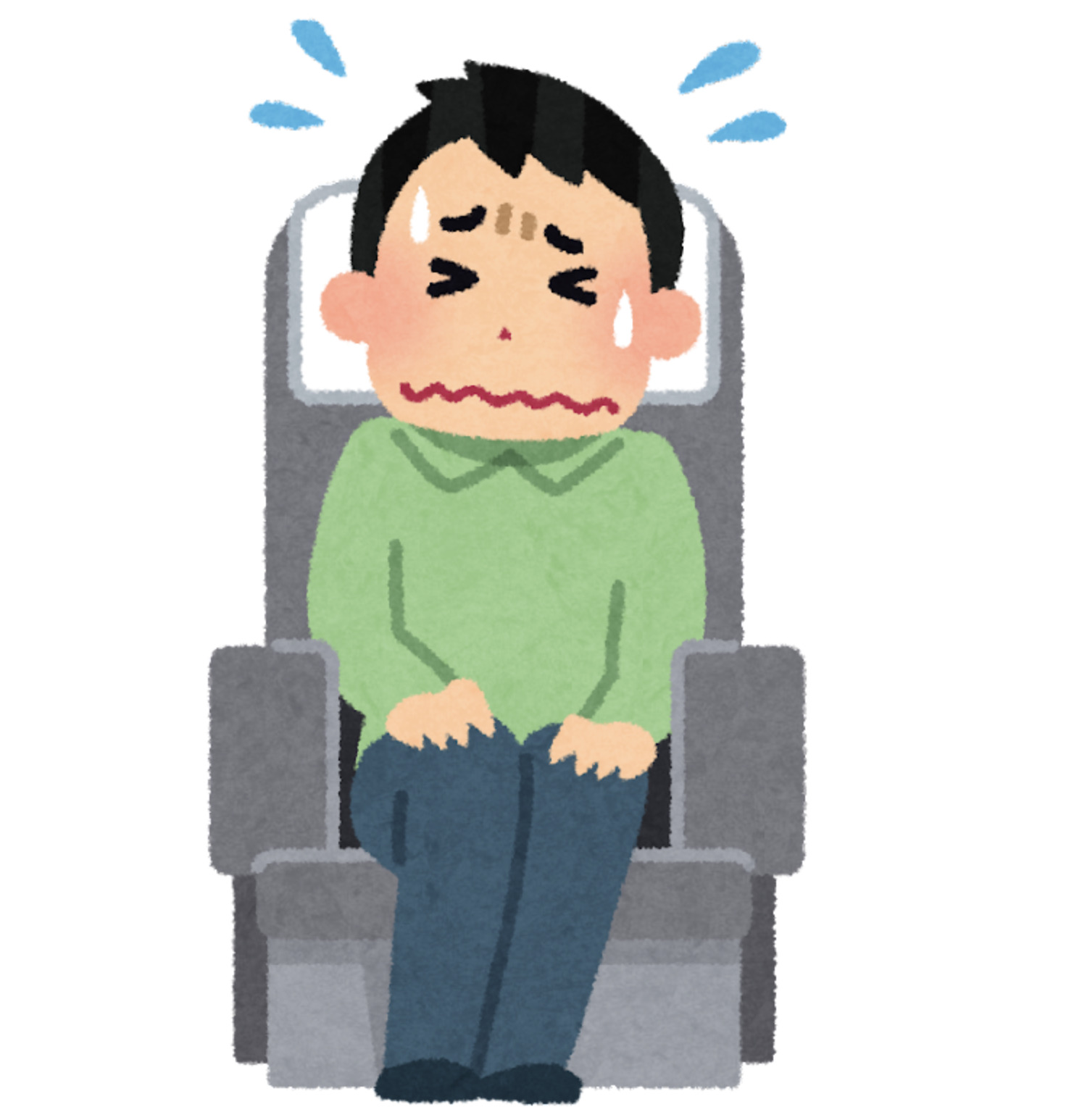Symptoms most likely to occur on airplanes and how to prevent and treat them
Dehydration
The humidity in the cabin is lower than usual due to the intake of outside air, and it is easy to become dry. Therefore, frequent rehydration is necessary. Alcohol consumption may cause water deprivation, so drink sparingly. If you wear contact lenses, it is recommended that you change to glasses.
Tinnitus
Air pressure in the cabin is adjusted to a lower level than usual. This can cause earache and hearing loss due to inadequate ventilation through the Eustachian tubes. Occasional Moving of the jaw and swallowing exercises during descent can relieve these symptoms. Pinching the nose to let air in and open the Eustachian tubes can also help relieve tinnitus.
Cerebral anemia
Most cases of cerebral anemia occur after eating, drinking, or standing on the toilet. It is often caused by fatigue before or during the trip, so make sure your travel itinerary allows plenty of time for this.
Nausea and vomiting
Nausea and vomiting caused by motion sickness can be effectively treated with anti-sickness medication. Please bring something with you that you are familiar with.
Economy Class Syndrome
Have you ever felt swelling in your legs after sitting in an airplane for a long time? This is due to the stagnation of blood in the veins, causing the fluid in the blood to drain out. The loss of fluid in the blood causes blood clots in the veins, and in rare cases, these clots can get stuck in the blood vessels of the lungs and cause breathing difficulties. This is called an economy class syndrome.
Prevention and remedies
- – Wear loose-fitting clothing when boarding.
- – Exercise by lifting your heels and toes up and down.
- – Massage calves.
- – Drink plenty of fluids and avoid alcohol.
- – Take deep breaths from time to time.
How to Overcome Time Difference
- Slowly adapt to your new sleeping schedule
- Rest for three days before you leave
- Cut back on alcohol, caffeine, and sugar
- Drink plenty of water, etc.
What is Time Difference Syndrome?
Flying rapidly between time zones that are more than 5 hours apart can cause a discrepancy between the body’s internal rhythms and actual living time, resulting in symptoms such as insomnia, nausea, fatigue, loss of appetite, and decreased ability to work. This is known as jet lag syndrome. Generally, symptoms are more severe when flying eastward than when flying westward.
Countermeasures against jet lag syndrome
It is important to ensure adequate sleep and rest before heading for departure. Alcohol can also disrupt sleep rhythms, so taking of alcohol should be moderate.




Comments